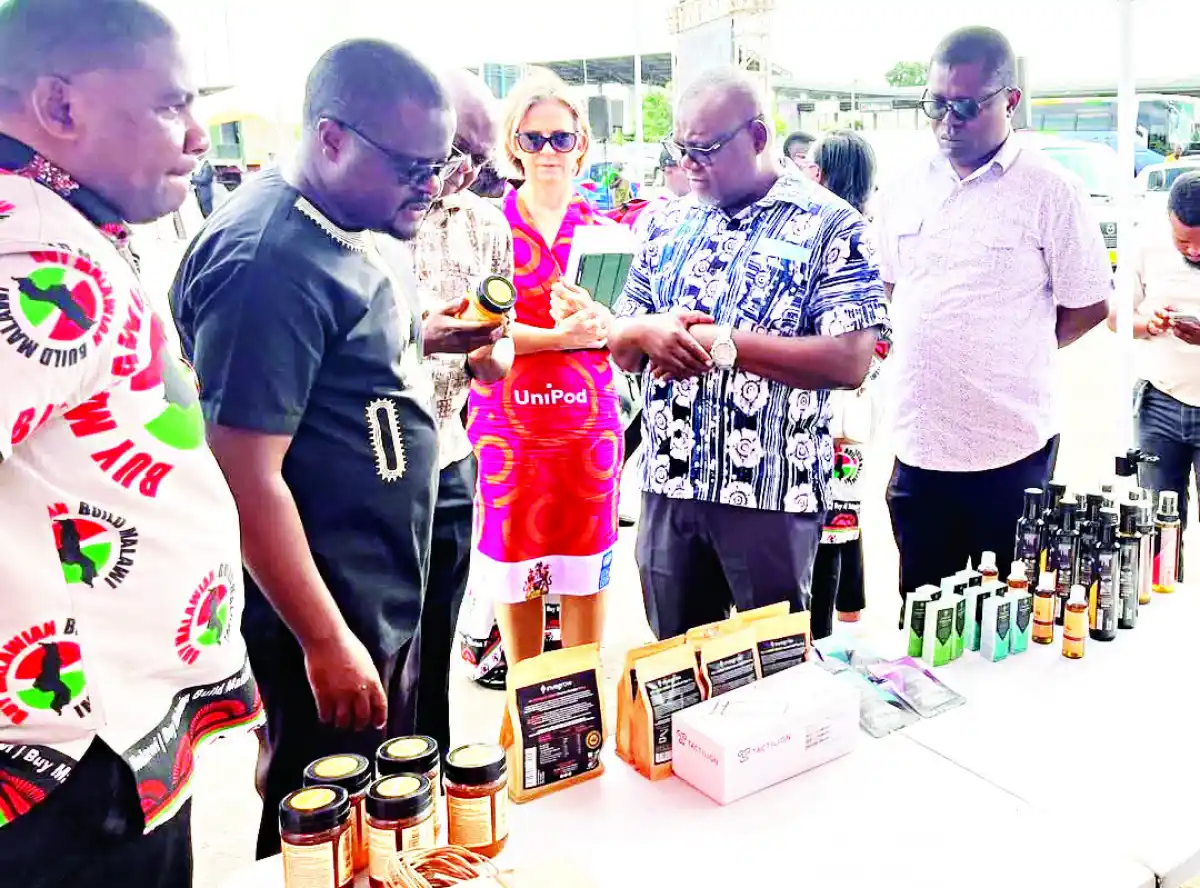
By Kingsley Jassi:
The country commemorated the Buy Malawi initiative between Friday and Sunday.
This is an annual event that strives to promote the culture of buying locally available products and services.
However, a decade since the initiative was launched, with full support from the United Nations Development Programme (UNDP), there is little to show for it as displays still have the same struggling products, dominated by agro-based processed food that cannot grab the attention of the national flag carrier and high offices.
This appears to worry UNDP, as country representative Fenella Frost had to make an appeal for Malawians to accept and embrace the initiative by having pride in the brand and providing resources for its momentum.
According to Frost, there is not enough attention paid by Malawians to the initiative and the brand, which should have been the source of national pride.
“UNDP has been very proud to support the initiative for the past 10 years but we want the brand to be self-sustainable and it doesn’t need investments from external development partners,” Frost said at the commemoration.
This is happening at a time local industrial production is at the lowest in recent years, as imports are worth 2.5 times more than exports, creating a serious trade imbalance that has caused economic woes.
However, the recent import ban of some products that are produced locally attempts to reverse the situation as it gives local producers an opportunity to fill the gap.
Most producers say their challenge remains capacity, notably financial constraints that stop them from upscaling and modernising production.
They also cite a hostile environment that limits their growth.
Minister of Industry and Trade Vitumbiko Mumba demands quality, quantity and consistency from local producers, saying this is key to the success of the import ban.
On this, the minister said he would engage authorised dealer banks to support local small and medium enterprises and boost their production while making sure that the Buy Malawi concept is embraced.
“There are some interventions we’ve taken. Soon, we will be meeting financial institutions and the (Reserve Bank of Malawi) governor will be there, where we will be discussing the issue of financing challenges [among other things],” Mumba said. Mumba further said with the existing directive on the prioritisation of locally available goods, there would be enforcement to ensure that all public institutions are adhering to the directive.








0 Comments